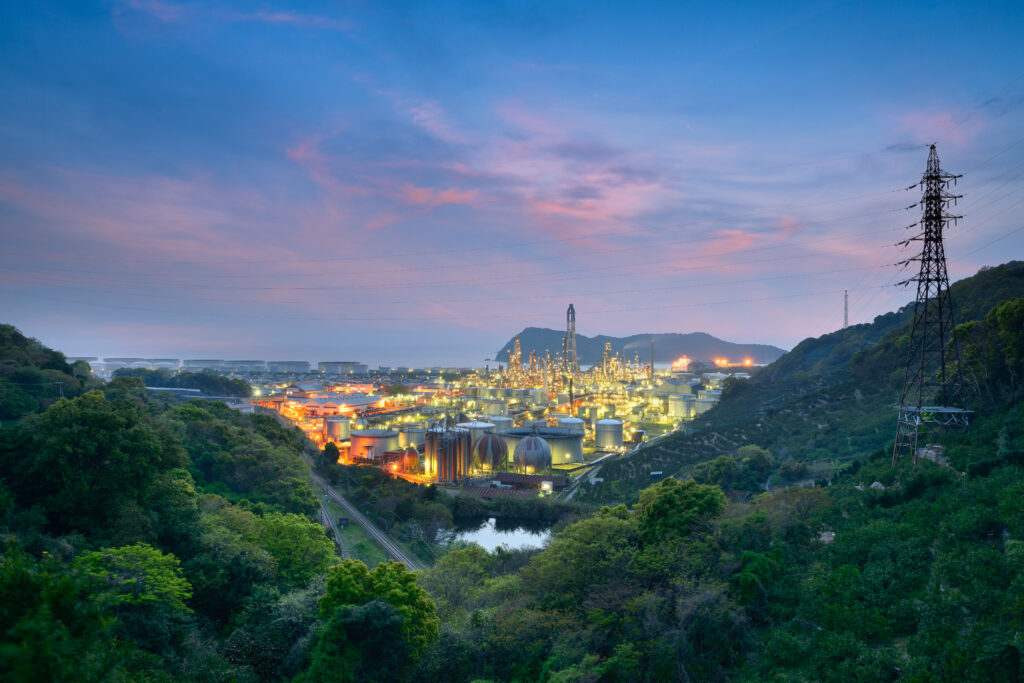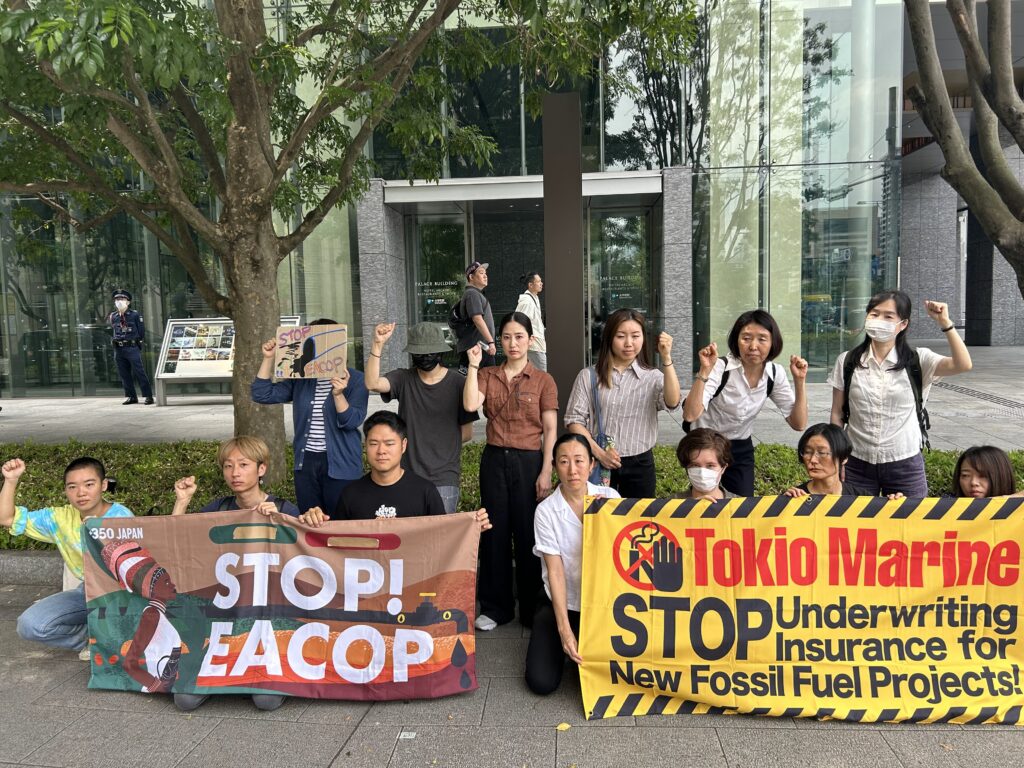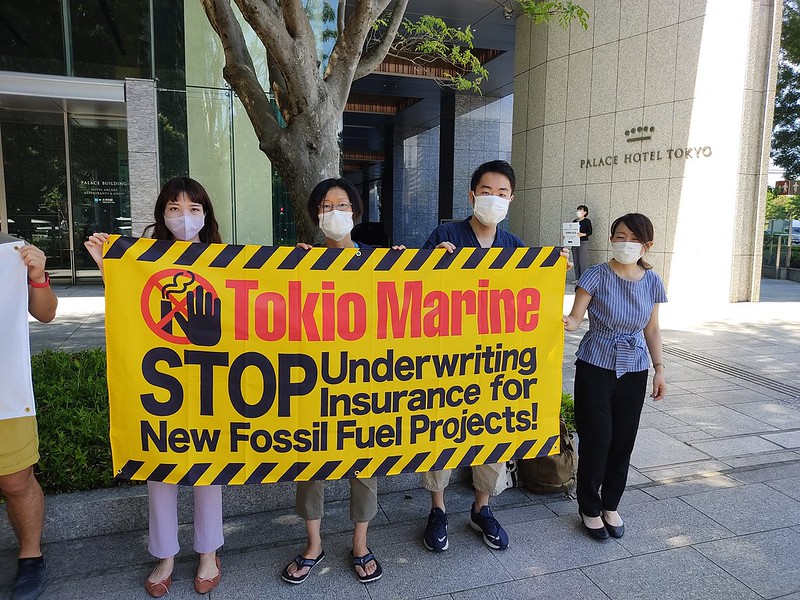By Peter Bosshard, Global Coordinator for the Insure Our Future campaign
Tokio Marine, Japan’s biggest international insurance company, would like to see itself as a corporate climate leader. It needs to quickly exit coal if it doesn’t want to be seen as a leader in corporate greenwashing.
Tokio Marine’s central brand pledge is “to be a good company”, and its CEO Satoru Komiya has called climate change “a top-priority issue that we must address head-on”. The insurer has committed to pursuing science-based climate targets and has signed up to a variety of other corporate climate proposals.
Yet, in spite of these well-sounding commitments, Tokio Marine is one of the world’s 10 biggest remaining insurers of coal, oil and gas projects. Unlike 38 industry peers, it has not ruled out insuring the Adani Group’s giant Carmichael project in Australia. Unlike 28 other insurance companies, four of whom East Asian peers from Korea, Tokio Marine has not adopted a clear and general coal exit policy.
Recently, the Insure Our Future campaign called out Tokio Marine’s role as an enabler of new fossil fuel projects in a new website. Since then, protesters have repeatedly shown up at Tokio Marine offices around the world, and more than 30 groups, particularly from the Global South, asked the company’s CEO to end further support for new fossil fuel projects in an open letter. When Tokio Marine didn’t respond, they called it out as a “coal insurer of last resort”, along with AIG and Lloyd’s of London, in a full-page ad in the Financial Times.
Tokio Marine argues that coal is still needed to ensure the energy security of poor countries. Yet in May, the International Energy Agency (IEA), the world’s pre-eminent energy think tank, found that all new fossil fuel projects are incompatible with a goal to limit global warming to 1.5°C, and are not needed to ensure energy security and economic growth.
UN Secretary General António Guterres has meanwhile confirmed that the IEA’s findings need to have consequences for insurance companies. “We need net zero commitments to cover your underwriting portfolios,” he told a gathering of insurance executives last week, “and this should include the underwriting of coal and all fossil fuels. COP 26 must signal the end of coal.”
On May 28, Tokio Marine finally responded to the public pressure by announcing New Initiatives for Carbon Neutrality by 2050. So what’s new? The initiatives include measures to reduce the carbon emissions of its business operations (think light bulbs and printers), an increase in the number of electric vehicles in its car park, and continued support for its tree planting program. However, Tokio Marine remains completely silent on the new fossil fuel projects enabled by its insurance services.
Tokio Marine’s announcement sounds as if Philip Morris, the world’s biggest tobacco company, prohibited smoking in its offices but continued to push cigarettes among teenagers around the world. It is reminiscent of a Las Vegas casino which bans slot machines in its cafeteria but continues to foster addiction in its gambling halls. It comes across as if the National Rifle Association prohibited the use of assault weapons on its premises while promoting it everywhere else.
The emissions from projects financed by banks are, on average, more than 700 times bigger than the operational emissions of the same banks, the Carbon Disclosure Project found in April. The numbers will look similar for the emissions from projects underwritten by insurance companies. A carbon neutrality plan which doesn’t address the projects it insures will make Tokio Marine a hot contender for the Eco-Business greenwashing award of the year.
In an Insure Our Future Twitter poll, an overwhelming majority of participants just voted for an end to coal insurance as the most important climate action Tokio Marine should take. The insurer, which will hold its Annual General Meeting on June 28, needs to drop its support for coal immediately if it wants to rescue its reputation with climate-conscious campaigners, investors and customers.







